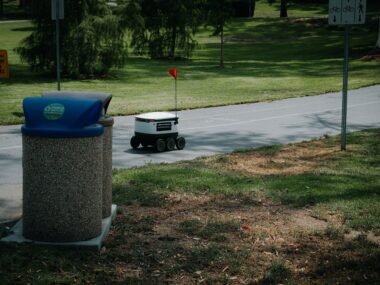In the mosaic of human diversity, individuals with developmental disabilities represent a vibrant and integral part of our society. Yet, they often face unique challenges in accessing opportunities for skill development and integration. In the United Kingdom (UK), strides have been made to address this disparity through dedicated skill acquisition programs tailored to their needs. These initiatives not only nurture talents but also foster independence, self-confidence, and a sense of belonging. Let’s delve into the landscape of skill acquisition programs for individuals with developmental disabilities in the UK, exploring their impact and the pathways they pave towards a more inclusive society.
Understanding Developmental Disabilities:
Developmental disabilities encompass a spectrum of conditions affecting cognitive, physical, or sensory abilities. Conditions like autism spectrum disorder (ASD), Down syndrome, cerebral palsy, and intellectual disabilities are among those included. Each individual presents unique strengths and challenges, requiring tailored approaches to skill development.
Challenges Faced by Individuals with Developmental Disabilities:
Navigating daily life can be daunting for individuals with developmental disabilities. Social stigma, limited educational and employment opportunities, and barriers to accessing support services contribute to their marginalization. Moreover, the lack of understanding and accommodations often exacerbates their sense of isolation and hampers their potential for growth.
The Role of Skill Acquisition Programs:
Skill acquisition programs play a pivotal role in empowering individuals with developmental disabilities by providing them with structured learning opportunities, vocational training, and social integration. These programs are designed to accommodate diverse needs and abilities, fostering a supportive environment where participants can thrive and unleash their full potential.
Tailored Learning Approaches:
One size does not fit all in skill acquisition programs. Recognizing this, initiatives in the UK employ a person-centered approach, tailoring interventions to individual strengths, interests, and goals. Whether it’s honing communication skills, mastering vocational tasks, or fostering creative expression, programs are customized to unlock each participant’s unique talents.
Promoting Independence and Self-Advocacy:
Central to skill acquisition programs is the promotion of independence and self-advocacy. Participants are equipped with practical life skills, from personal hygiene to household management, empowering them to lead fulfilling and autonomous lives. Moreover, these programs nurture self-advocacy skills, enabling individuals to voice their needs, preferences, and aspirations confidently.
Fostering Social Inclusion:
Social inclusion is a cornerstone of skill acquisition programs, fostering meaningful connections and breaking down barriers to community participation. Through group activities, peer support networks, and community engagement initiatives, participants develop vital social skills and forge lasting friendships. These interactions not only enrich their lives but also challenge societal stereotypes, promoting a culture of acceptance and inclusivity.
Employment Pathways and Vocational Training:
Transitioning into the workforce can be daunting for individuals with developmental disabilities. Skill acquisition programs in the UK bridge this gap by offering vocational training, job placement support, and on-the-job coaching. From hospitality to horticulture, participants are exposed to diverse vocational pathways, equipping them with the skills and confidence to pursue gainful employment.
Building Collaborative Partnerships:
The success of skill acquisition programs hinges on collaborative partnerships between government agencies, community organizations, educational institutions, and businesses. By pooling resources, expertise, and networks, stakeholders can enhance program accessibility, sustainability, and impact. Moreover, fostering cross-sector collaborations fosters a holistic approach to supporting individuals with developmental disabilities throughout their lifespan.
Celebrating Success Stories:
Behind every skill acquisition program lies a tapestry of success stories, each testament to the transformative power of empowerment and inclusion. From mastering new skills to securing meaningful employment, individuals with developmental disabilities are defying stereotypes and charting their own paths to success. By celebrating these achievements, we not only recognize their talents but also inspire others to embrace diversity and create a more inclusive society.
Conclusion:
Skill acquisition programs are beacons of hope, illuminating the path towards empowerment and inclusion for individuals with developmental disabilities in the UK. Through tailored learning approaches, holistic support, and collaborative partnerships, these initiatives are unlocking potential and reshaping narratives. As we champion diversity and embrace the capabilities of every individual, we move closer to realizing a society where everyone has the opportunity to thrive, contribute, and belong.






